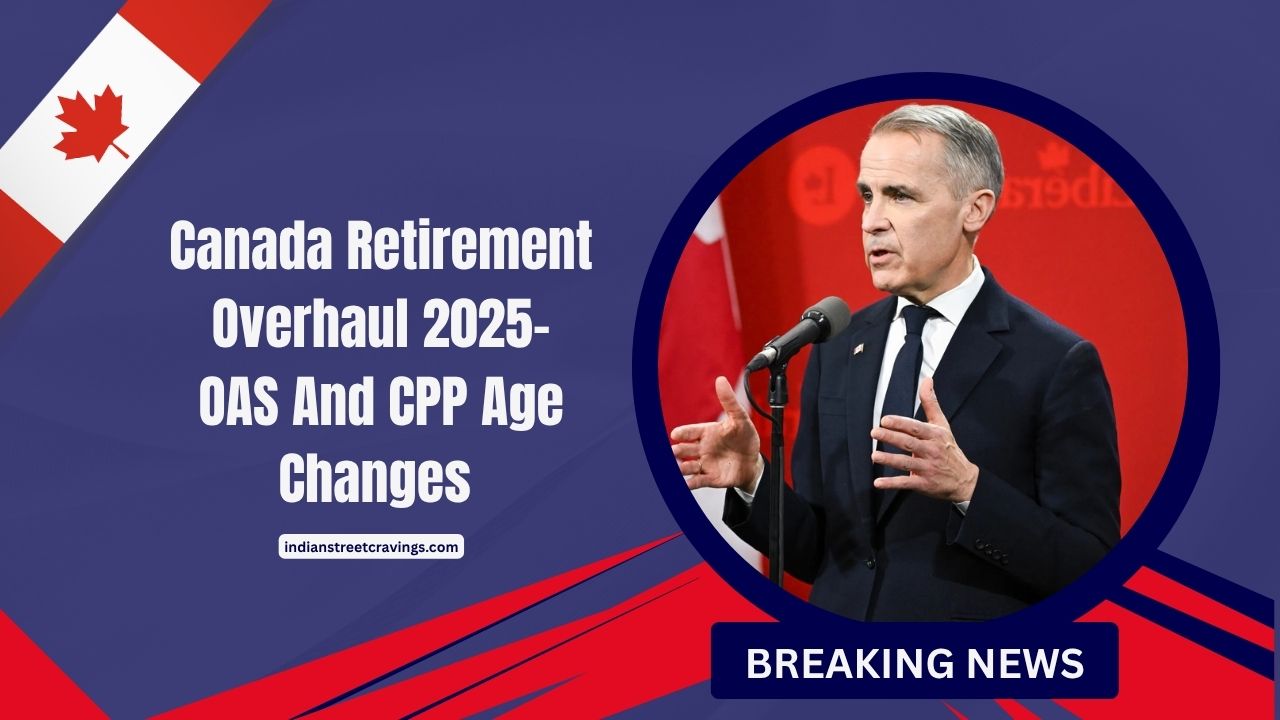As Canada faces a rapidly aging population, major changes to the Old Age Security (OAS) and Canada Pension Plan (CPP) systems are arriving in 2025.
These reforms aim to modernize retirement income options by offering incentives for Canadians to delay retirement beyond age 65—a move driven by longer lifespans, shifting labor patterns, and increasing fiscal pressure on pension programs.
This Canada Retirement Overhaul 2025 introduces enhanced flexibility and increased financial benefits for those who choose to work longer.
Understanding these changes is essential for retirees, workers nearing retirement, and financial planners alike.
What Are the Key Changes in 2025?
Although the age of 65 remains the baseline for retirement eligibility for both OAS and CPP, the 2025 overhaul encourages Canadians to delay their pension claims through higher monthly payouts.
Here’s what’s new:
- OAS Boosts:
- Canadians delaying OAS until age 70 can now receive up to 36% more in monthly benefits.
- Additional top-up payments apply to those aged 75 and above.
- CPP Enhancements:
- Deferring CPP until age 70 increases benefits by approximately 42% compared to starting at 65.
These changes aim to reward individuals who choose to stay in the workforce longer and delay tapping into retirement income.
Why Delaying Retirement Might Pay Off
Delaying retirement isn’t just about working more—it can lead to substantially higher lifetime income from government benefits.
Here’s a clear comparison:
| Scenario | Monthly Payment (Approx.) |
|---|---|
| CPP at Age 65 | $1,300 |
| CPP at Age 70 | $1,850–$1,900+ |
| OAS at Age 65 | ~$713 (base) |
| OAS at Age 70 | ~$970+ (with 36% boost) |
| OAS at Age 75 | Additional top-up applies |
These increases can greatly enhance retirement security, especially in the face of rising inflation, healthcare costs, and longer retirement periods.
What Should Retirees Consider Before Delaying?
Although the financial upside of delaying retirement is clear, retirement is a deeply personal decision. Here are factors to weigh:
- Health Status: Not all Canadians are in good health at age 65. In such cases, early retirement may be the best option.
- Employment Satisfaction: Enjoying work can be a motivator to stay longer, while burnout may push some toward early retirement.
- Family Circumstances: Care responsibilities, spousal health, and lifestyle preferences all impact the decision.
- Financial Planning: Individuals should assess all sources of retirement income including personal savings, pensions, and investments.
Working with a retirement advisor can help create a customized plan, aligning income strategies with personal goals and needs.
Canada’s Long-Term Retirement Vision
The 2025 retirement policy overhaul signals a shift from a one-size-fits-all model to a more personalized and incentivized framework.
Encouraging later retirement benefits the broader economy, helps ease strain on pension systems, and gives individuals the opportunity to earn significantly more over time.
This evolution empowers Canadians with greater choice, flexibility, and control over their retirement journey—whether they decide to retire at 65 or continue working toward 70 and beyond.
Canada’s 2025 retirement overhaul is transforming how and when Canadians retire. With substantial increases in OAS and CPP for those who delay benefits, there are powerful financial incentives for those who can and want to keep working longer.
However, personal factors—health, family, job satisfaction—must also be considered. The path to retirement is no longer linear, and that’s a good thing. Canadians now have more tools than ever to build a retirement plan that truly fits their life.
FAQs
What is the new age to receive full CPP and OAS benefits in 2025?
The standard age remains 65, but delaying benefits to age 70 can boost CPP by 42% and OAS by up to 36%.
Are there any extra payments for seniors over 75?
Yes, seniors aged 75 and over may receive additional OAS top-up payments as part of the 2025 changes.
Should I delay retirement to age 70 for higher benefits?
If you’re healthy and financially stable, delaying could significantly increase your monthly retirement income. Consult a financial advisor.
